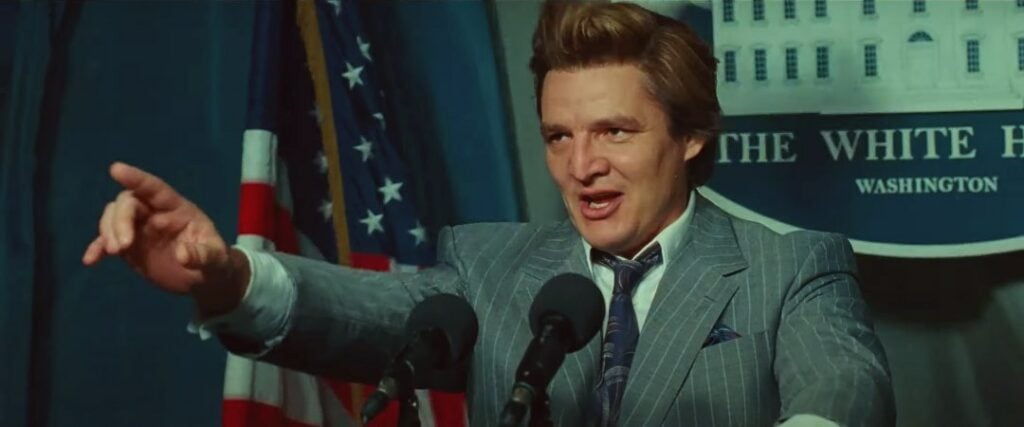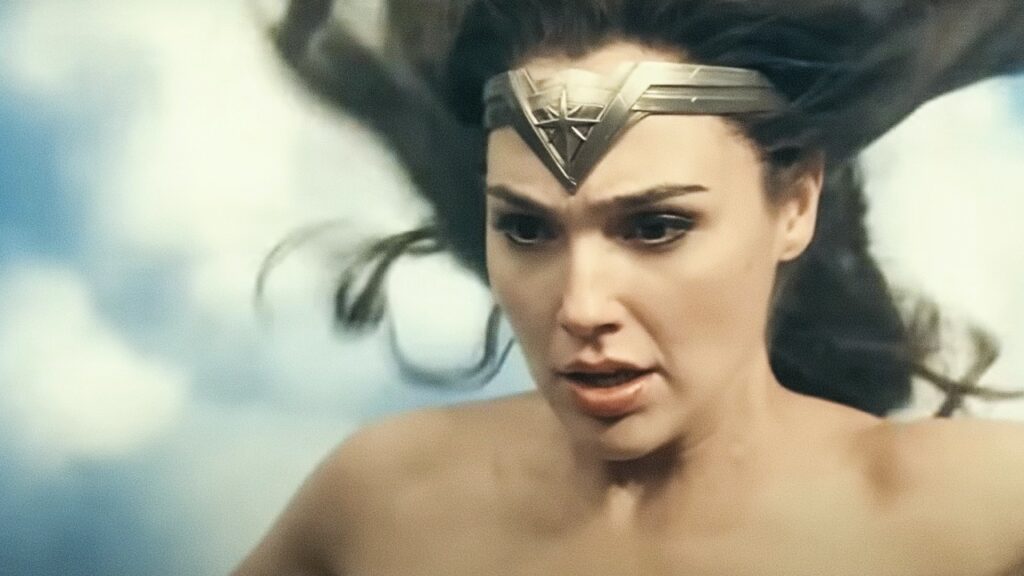The other day I finally caught Wonder Woman 1984 on TV. I must say it wasn’t as bad as I expected it to be, but still it wasn’t very good. The writing was bad, the directing was bad, the effects were mediocre at best, and so was most of the acting (sorry Gal Gadot…). I even dosed off for a couple of minutes in the beginning before the movie picked up the pace, but I didn’t feel like I missed something crucial to the plotline.
One thing did surprise me though, and that was the fact that at this day and age, and under all the layers of wokeness, the core message of the movie can only be viewed as conservative. I know it sounds weird but bear with me for a second.
The first hint is the line “nothing good is born from lies” which makes an appearance both very early in the movie (when kid Diana is caught cheating and taking a shortcut during the race), and also at 1:48 in the movie’s trailer:
However, this line is very general and vague. It applies to anything and anyone – especially nowadays when every inconvenient truth is labeled as misinformation. So this was not the message I was referring to, but it is an essential part of it. What make this movie conservative to its core is the fact that it shows what would happen if we eliminated the need to negotiate with reality and with the people around us, and instead had the power to bend them to our will and force them to see us the way we think we were supposed to be seen. The result of course is the inevitable collapse of society and the doom of civilization.
The villain of this movie is Maxwell Lord (portraited by Pedro Pascal) – a failed yet somewhat charismatic businessman with-funny looking hair, who takes possession of an ancient wish-granting artifact called the Dreamstone and wishes to become it. He gains the power to grant wishes and to take whatever he wants in return from the person making the wish.

It’s really not that hard to see what the source of inspiration for Max Lord was for the (clearly) left leaning people who made Wonder Woman 1984. I am willing to go out on a limb and say he was pitched as a “Trump-like” character – a dishonest grandiose businessman who stumbled into power and now dangerously and recklessly appeals to people’s basest fears and desires by making false statements and empty promises.
But the way I see it, they inadvertently created the embodiment of post-Modern thinking – you are the only one who gets to have a say when it comes to who you are and how the world should see and treat you. And if for any reason the world poses all sorts of demands, refuses to instantly acknowledge your identity, or lingers in granting you whatever it is you are entitled to, then you should have the authority to dictate the desired outcome for yourself and let the rest of society deal with it and pay the price.
On top of that, the movie does demonstrate that compelling people to agree with your self-perception comes with a personal toll. Not only will it not ultimately solve your problem or make you feel better about yourself, but it will also make you (and the people around you) pay a higher price in the end. A much higher price than what you would have paid initially if you tried to engage with the obstacles instead of ignoring them or trying to find a way around them. And if you ask me that makes Wonder Woman 1984 all the more conservative, and certainly more than its makers originally intended.
Wonder Woman in Hebrew
The name Wonder Woman had a very interesting journey in Hebrew. Nowadays most Israelis refer to Wonder Woman as וָונְדֶר ווּמֶן which is simply the Hebrew transliteration for her name. However, she was first known in Israel as אֵשֶׁת חַיִל (eshet cha’il) as this was the Hebrew name chosen for the T.V series from the seventies starring Lynda Carter.
The name אֵשֶׁת חַיִל (eshet chayil) was taken directly from Hebrew scriptures. It appears in the Book of Proverbs chapter 31 verse 10 where it opens a very famous acrostic poem known in English as Woman of Valor. The word אֵשֶׁת (eshet) is the smikhut form of אִשָּׁה (isha) – the Hebrew word for woman. The word חַיִל (cha’il) comes from the shoresh ח-י-ל (Chet-Yod-Lamed) which is associated with achievements and competence, heroism and the ability to fight, and even soldiers and military.
And speaking of the military and valor, it is really interesting to note that out of all the women in Hollywood, the one who finally landed the role of Wonder Woman was Gal Gadot. Not only was she a חַיֶּלֶת (chayelet – female soldier) in the Israeli army, but her name has the classic superhero name alliteration, as both her first name and last name begin with the same sound. This trope is more common among Marvel characters, but even in DC we have Clark Kent, Lex Luthor, Lois Lane, and Lana Lang.
Stay in Touch!
Get the next post from Hebrew Monk directly to you inbox!
Don't like emails? Subscribe to Heberw Monk's Telegram Channel instead.

